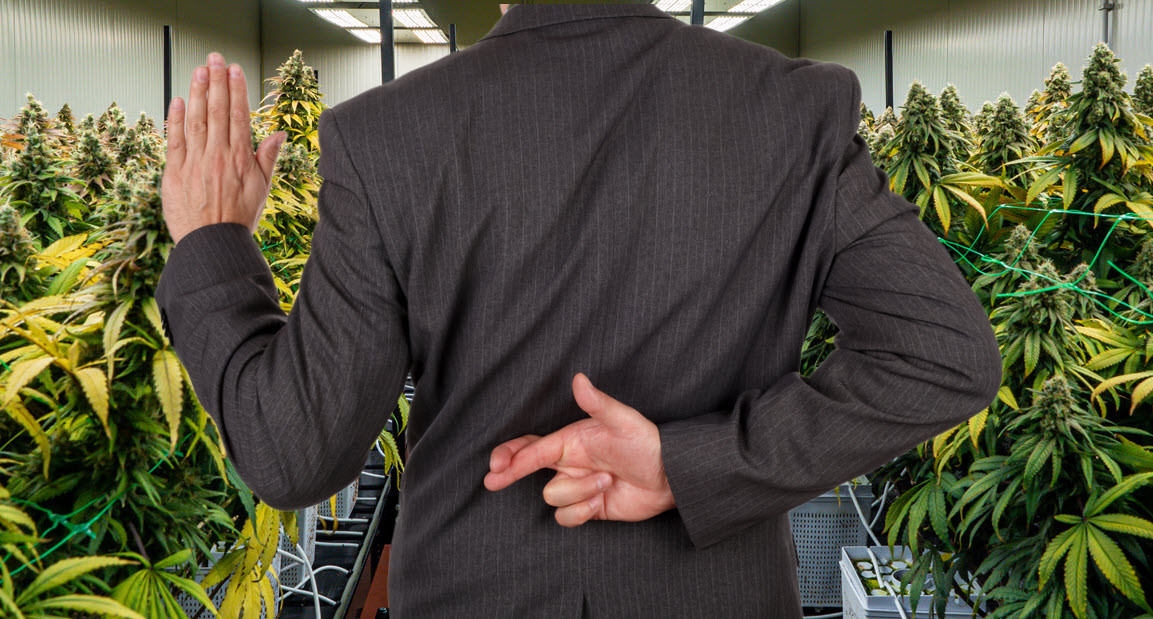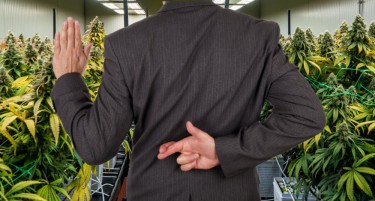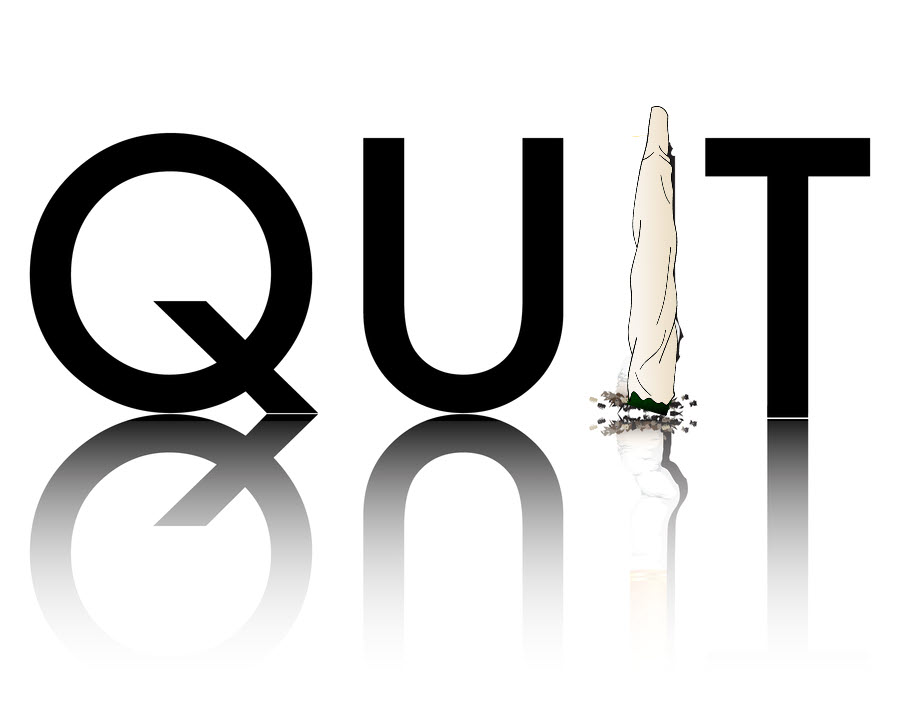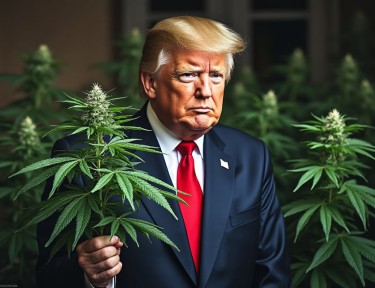Cannabis News
AI, Cannabis Knowledge, Venmo – How Stoners Can Make Bank in 2024 and Beyond!
Published
1 year agoon
By
admin

How Stoners can make Bank in 2024!
These days a buck barely buys half what it used to. Between inflation, greedflation, shrinking wages and bogus bans on workplace cannabis, making ends meet feels harder for the average stoner. entry-level grind feels fruitless just covering surging costs while careers waste potential behind outdated employment screens. Simply sustaining requires major money moves.
Fortunately, tech-savvy solutions suiting the modern stoner lifestyle abound. Whether needing some extra green or wanting to get out the corporate cube forever, practical paths await given the drive. Options transcending traditional jobs open doors for the cannabis inclined through location flexibility, passion pursuing, automation leveraging and underground economic participation now emerging in the light.
The key rests in taking action now rather than waiting for change. Because the emergence of crypto, AI and remote work combined with prohibition’s decline contain recipes for radical wealth creation at last checkable by the establishment. But we must first shake off limiting internal narratives that “getting ahead” demands dull conformity and begging gatekeepers.
The truth is rising costs pressure us to acknowledge skills and talents convertible outside boxes. Economic uncertainty kinds innovation; necessity guides us to recognize ways serving needs on our terms using tools instantly linkable to paying customers. This stands worlds apart from toiling hoping faceless corporations might throw raises to match inflation if we stay quiet.
Instead the new paradigm pays directly for digital services while aligned to higher callings, from coaching to blogging to advising and beyond. Stifled creativity finds outlets online daily as reform opens opportunities. So economic anxiety can give way to agency by applying weed-friendly abilities as micro-entrepreneurs and solopreneurs. Our yearnings supply the vision, technology the leverage. But first we must dare getting paid as our truest selves by those seeking it.
2023 set the stage for mass AI fascination, but 2024 shifts focus toward niche applications revolutionizing niche industries. Beyond generalized chatbots, we will see robust generative programs custom-built to replace entire professions with just one person’s specialized oversight. Suddenly solo entrepreneurs gain world-class skills instantly outperforming corporate teams.
Take book authorship – a novel writing assistant called “NovelCraft” helps fiction writers visualizing scenes, tracking character arcs across series, even theorizing fictional conversations on command. By offloading intense logistics, authors spend time bringing creative vision while AI handles heavy structuring. This hybrid approach allows artists crafting indeed masterpieces with minimal overhead.
And the costs prove reasonable for most – early pricing suggests such writing aids will run under $20 monthly. Compare that to traditional publishing requiring endless querying and revisions before eventual rejection. AI publishing frees creators sharing stories on their own terms.
When supplemented with other generative programs building out promotional graphics, book covers and recommended marketing prompts, a single author now commands a suite of talents mass distributing books directly to target audiences. This eliminates previous barriers like agonizing over writing quality or hiring teams to format, design and advertise.
The same formula applies for online education. Specialized tutoring AI helps craft personalized lesson plans then teaches students 1-on-1 tailored to their pacing and interests. Charging even $20 per customized session easily covers subscription costs to talent amplifying tech with income leftover.
Or on the graphic design front, AI image generators integrate seamlessly into workflow taking descriptive text and rendering gorgeous visual assets. This allows solo artists and media teams to exponentially boost output against corporate competitors still hand-drawing every element.
The common thread centers on leveraging emerging tech to unlock capacity and talents once completely inaccessible to individuals. Suddenly realization of any alluring idea or startup business rides less on mastering infinite skills but wisely applying combination templates to expediently transplant knowledge into service offerings.
So stoners can skip traditional jobs altogether by mixing passions with AI tools sculpting sellable solution spaces around them. Find needs wanting filling, utilize generative software custom fitting delivery, then profit simply bridging the gap. Freelancers configure writing aids penning SEO articles by the dozens monthly for clients or configure legal advising bots dispensing personalized case information to law firms.
The formula multiplies across infinite niches. Knowledge and creativity remain the sole constraints; technology now removes the majority limits on productive application. The equation shapes a marketplace of ideas accessible and sellable by any devoted dreamer. Where isolation and unchanged industries left minorities behind before, personalized AI ushers in tribes finding encouragement finally through voices unafraid targeting micro-markets corporate mammoths neglect.
With the right vision, AI allows monetizing almost anything by becoming intersection of passions, tech efficiency and customer pain points. Stoners might craft cannabis columns syndicated globally or captain virtual baking classes teaching grandma’s secret edibles.
While white-collar jobs bow to coming AI overlords, hands-on technical skills resist automation, ensuring endless demand. As predictions of robots replacing workers miss the mark on physical tasks, mundane careers offer major money moves surviving shifting economic eras. The world always needs tradespeople unclogging pipes, technicians troubleshooting machinery, builders constructing spaces. Thus as collars increasingly tighten for office-bound grads, trades guarantee sanctuary.
Consider plumbers, electricians, HVAC specialists – unglamorous roles where necessity cements job security. As infrastructure advances, devices demand greater expertise fixing inevitable failures beyond amateur inspection. And with handyperson wisdom fading across younger generations, supply shrivels for such mechanical crafts just as need compounds.
This proves the perfect storm for stoners sidestepping restrictive career gates keeping corporate ladders forever steep. Because unlike those office domains demanding conformity across conduct, appearance and political correctness, traits mattering little for practical technicians assigned clear measurable productivity goals. Show up, do good work, get paid.
Better pay too – Master electricians easily clear six figures directing teams, industrial welders match engineering salaries, and freelance contractors set rates drawing clients desperate just keeping daily life functional. Cannabis tests pose no issue when skill itself sells.
Moreover entering trades only requires affordable certification programs, apprenticeships or associate degrees – not endless Ivy League credential inflation. Prove hands capable at assigned technical tasks, develop speed/precision and income flows quickly sans six-figure student loan debt. Experience outweighs institutional deterrents.
Stoners might especially excel here through cannabis ingenuity boosting unconventional problem-solving. The type of out-the-box thinking institutions actively discourage. Trades reward resourcefulness and nuanced insights into failures necessary making things work. They keep infrastructure running, a noble task.
So for those disinterested desk jobs on one side yet intimidated high-tech on the other, look into skilled trades or specialized repair careers. As long as civilization becomes increasingly more complex technically, your talents find welcome homes. Tech breakthroughs never halt human needs for functioning homes, electricity, climate systems, robust networks. And hippie intuition Makes many master diagnosticians, able to feel out solutions logically-impaired robots cannot conceptualize. We all require water, warmth and sanitation. Stoners can provide as educated technicians.
Beyond pardons, stoners stuck with petty pot charges messing up work and money should look into clearing records. Even old misdemeanors create lifelong barriers once you “do your time”. Background checks spotlight old weed arrests limiting jobs or loans years later, no matter how you’ve changed.
But record sealing or expungement laws let some old charges get deleted if conditions met. It takes lawyer navigating, but maximizes odds clearing obstacles over dumb past mistakes.
Typically years after convictions, if parole terms met, people can petition courts to erase select cases from public record. Approved, expungement bans background screening companies reporting disposed stuff without your say. Checks ask about convictions? Mark “no” without old weed busts still haunting you or rescinding job offers later.
It ain’t easy though. Not all states have expungements, long exclusion lists after 2018’s First Step Act demand individual review, and standard denials happen.
But for petty, nonviolent possession misdemeanors, appeal chances are solid. Specially play up youth, work/school needs and staying clean. Pressure increases on courts to ditch old claims as more markets go legal and research piles up.
Serious trafficking charges probably won’t vanish quick though. But loser imprints like possession or paraphernalia cling-ons do screw rebuilding lives. And despite government bogeymen, such damage very much risks public safety by keeping people disadvantaged. Staying desperate with limited options.
So those moving past youthful cannabis charges shouldn’t endure lifelong punishment. Custom sealing provides paths clearing records to enable real economic participation rather than repeated obstacles.
In fact, strong expungement case pitches detail opened doors awaiting petitioners lacking only clean profiles. Tying ambitions to transparent civic duty sways some stubborn judges. More flies with honey and all.
With entry barriers dropping beyond strict federal contractor stuff, old Reefer Madness stigma proves the final hurdle. Why should minor pot charges from years back keep closing doors today on reformed citizens open to opportunity? The law allows rewriting stories; expungement completes the tale.
Next-gen tech now lets anyone profit from talents once solely owned by big dogs. Democratized access spreads as AI, automation and remote work crush barriers, letting solo entrepreneurs compete with corporate squads. Suddenly, restricted creators directly reach aligned fans instantly sharing offerings.
These leverage multipliers signal the rise of an ideas economy where passion and skill attract resources to build custom solutions for niche crowds. Cloud computing permits fast prototyping without fat infrastructure costs. Loving supporters discover you as accessibility tech bridges participation limits.
Basically the obstacles historically blocking small business ideas face systemic disruption through algorithms scaling modest ventures toward micro-multinationals. Where oppressive laws and social blocks once corralled minorities as spectators, now independent people form communities around unlocking mutual support and cosigns.
Technology welcomes excluded voices rather than censoring underrepresented perspectives. It spreads messages quickly, gaining critical mass through shared truths. Mass resonance overcomes traditional gatekeepers; solutions sell themselves by addressing unresolved needs.
So hopefuls should shift gears toward action before hesitation permits doubts killing initiative. Momentum favors first movers rather than perfect planners stuck spinning wheels afraid of unknown reception. Throw work out and let people show demand.
Every skill suits some lifestyle solution another will pay to get. Find the channels craving your creative flair then make passion a profession. Document your know-how teaching subscribers or design merchandise displaying your vision. This new wave lets you make bank from anything by aligning with niche crowds.
But first build it and they will come. The tools await your imagination’s instructions. Delays base only on belief in personal incapability, not system roadblocks holding you back. Market desire exists if you dare deliver the means of satisfying it. Fortune favors the bold builders rather than the watching. 2024 offers no excuses, only wide open empowered potential.
HOW TO MAKE MONEY IN WEED WITHOUT SELLING IT, READ ON…
You may like
-


Couple arrested with large amounts of weed and molly
-


The Cannabis Rescheduling Ruse – White House Says No Action Planned on Cannabis Reform, Hate to Say I Told You So!
-


Why Quitting Alcohol or Weed Won’t Heal the Pain That Caused You to Start Using Them in the First Place
-


Oklahoma voters could weigh in on adult-use marijuana legalization in 2026
-


Karma Koala Podcast 247: Speaking with Dr. Natalie Corthésy senior lecturer university of West Indies & Enrico Bonadio professor of law City St George’s University of London about their forthcoming Edward Elgar title, “Intellectual Property and Cannabis”
-


MJBizCon offers speakers chance to share cannabis insights, shape industry
Cannabis News
The Cannabis Rescheduling Ruse – White House Says No Action Planned on Cannabis Reform, Hate to Say I Told You So!
Published
1 day agoon
April 5, 2025By
admin

The Rescheduling Ruse: Why I Told You So
In a move that surprised absolutely no one who’s been paying attention, the White House recently announced it has “no action planned” on marijuana reform. Yes, the same marijuana reform that President Trump enthusiastically backed on the campaign trail just weeks before Election Day.
The writing was on the wall all along, folks. I’ve been telling you for months that the much-hyped rescheduling of cannabis from Schedule I to Schedule III was nothing more than political theater – a carefully choreographed dance designed to generate headlines without delivering substantive change. And here we are, with yet another administration putting cannabis reform on the back burner while millions of Americans continue to live under the shadow of failed prohibition policies.
Don’t get me wrong – I’m not here to play political favorites. This isn’t a red versus blue issue. The Biden administration dangled the same carrot, initiating a rescheduling process that conveniently stalled due to “complications” with DEA hearings. Different players, same game.
Let’s take a step back and examine what’s really happening here, because the truth about cannabis reform in America is both simpler and more complex than most people realize.
Trump’s pre-election cannabis conversion was quite the spectacle, wasn’t it? Suddenly, the man who selected Jeff “Good People Don’t Smoke Marijuana” Sessions as his first Attorney General was voicing support for rescheduling, banking access, and even Florida’s legalization initiative.
But as CNN recently reported, “no action is being considered at this time.” The honeymoon didn’t even last through the first dance. The administration’s priorities lie elsewhere – immigration, government spending, foreign policy – while cannabis reform gets shelved alongside countless other campaign promises.
Interestingly, CNN did note that Trump and his transition team attempted to include cannabis banking protections in December’s government funding resolution. This behind-the-scenes effort suggests at least some genuine interest in the issue, but hardly qualifies as the bold reform millions of voters were led to expect.
This pattern should feel familiar. The Biden administration made similar overtures, with the president announcing pardons for federal marijuana possession offenses and directing an administrative review of cannabis scheduling. That process dragged on for over a year, with the DEA repeatedly delaying final action. Biden got the headlines; cannabis users got nothing.
The harsh reality? Cannabis reform makes for good campaign fodder, but terrible governance priorities. Once elected, the political calculus changes dramatically. The motivation to deliver evaporates when the votes are already counted and the special interests start calling in their favors.
At the heart of this perpetual delay lies the Drug Enforcement Administration – an agency whose very existence depends on the continuation of the drug war. Expecting the DEA to facilitate cannabis reform is like asking a turkey to vote for Thanksgiving.
The DEA has mastered the art of procedural obstruction. Under Biden, they scheduled hearings, requested extensions, and effectively ran out the clock. Under Trump, they appear poised to do absolutely nothing, perhaps not even bothering with the pretense of consideration.
The pattern becomes clearer when you look at Trump’s cabinet picks. His nominee to lead the DEA, Terrance Cole, has previously voiced serious concerns about marijuana dangers and linked its use to higher suicide risk among youth. His HHS general counsel nominee, Mike Stuart, is so staunchly anti-cannabis that prohibitionist groups openly celebrated his selection.
Even Robert F. Kennedy Jr., who previously supported legalization, has walked back his stance since being confirmed as HHS Secretary, stating he’s “worried about” high-potency marijuana and deferring to the DEA on rescheduling.
When you stack the regulatory deck with cannabis skeptics, you’ve telegraphed your true intentions no matter what you said on the campaign trail.
Here’s what I’ve been saying all along: meaningful cannabis reform was never going to come from the White House, regardless of who occupied it. The DEA will never willingly relinquish its power, and politicians will always prioritize easier wins over controversial reforms.
The only real path forward is through Congress completely removing cannabis from the Controlled Substances Act. Full stop. No rescheduling, no administrative reviews, no half-measures. Cannabis needs to be descheduled entirely, returning regulatory authority to the states where it belongs.
But while we push for that goal, the real revolution continues on two fronts.
First, state-by-state legalization marches forward. Despite federal inaction, 38 states have medical marijuana programs, and 24 states plus DC have legalized adult use. Each new state that joins the ranks weakens prohibition’s grip and demonstrates the failure of federal policy.
Second, and perhaps more powerful, is what I call “mass defiance of an unjust law.” Every day, millions of Americans peacefully consume cannabis in direct violation of federal law. They grow it in their homes, share it with friends, and build communities around it. This civil disobedience at scale is perhaps the most effective weapon against prohibition.
The federal government simply doesn’t have the resources to enforce cannabis prohibition against a population that increasingly rejects it. When enough people break an unjust law, the law itself becomes unenforceable.
I hate to say I told you so, but… I told you so. The rescheduling promise was never going to materialize, regardless of who won the White House. It was a political mirage, designed to attract voters while requiring minimal commitment.
But don’t mistake my cynicism about federal action for pessimism about our cause. Cannabis reform is happening – it’s just happening from the ground up rather than the top down. Every state that legalizes, every municipality that decriminalizes, every voter who demands change, and yes, every person who peacefully consumes despite prohibition is part of this unstoppable movement.
The lesson here is simple: Don’t put your faith in presidential promises or administrative processes. Put it in your local ballot initiatives, your state legislators, and your own power to reject unjust laws through peaceful non-compliance.
Cannabis prohibition is dying, not because presidents commanded it, but because we the people have decided it must end. That’s the real power in our democracy – not the fleeting promises of politicians, but the sustained will of the citizens.
So next time a candidate promises to fix cannabis laws, remember this moment. Then go out and fix them yourself, one vote, one state, and one act of principled defiance at a time. That’s how real change happens in America, and that’s how we’ll finally end cannabis prohibition once and for all.
CANNABIS UNDER TRUMP 2.0, READ ON…
Cannabis News
Why Quitting Alcohol or Weed Won’t Heal the Pain That Caused You to Start Using Them in the First Place
Published
1 day agoon
April 5, 2025By
admin

Quitting Won’t Fill the Hole
There’s a pervasive notion that floats around recovery circles—this idea that once you kick your habit, everything will magically fall into place. The clouds will part, the birds will sing, and suddenly life will be worth living again. While it’s true that being addicted to a “thing,” whether substance or act, eventually tallies up consequences that weigh heavy on our souls, the math isn’t quite as simple as “remove addiction, add happiness.”
I’ve watched countless cannabis enthusiasts (and addicts of all stripes) fall into this trap. They sit in circles, eyes gleaming with hope as they declare, “If I could only quit, then everything would be better…” But they’re missing something crucial—their addiction isn’t the source of their discontent; it’s merely a symptom of something deeper.
Addiction, at its core, is a means of dealing with something we cannot name or are desperately trying to avoid. It’s the bandage we slap over a wound without cleaning it first. The cannabis, the alcohol, the gambling, the endless scrolling—these aren’t the disease itself but rather the body’s misguided attempt at self-medication.
Here’s the uncomfortable truth that most recovery programs don’t emphasize enough: if you don’t do the real healing, even if you manage to white-knuckle your way through quitting one addiction, you’ll inevitably find something else to cover that gaping wound. Maybe you’ll trade joints for junk food, or bongs for binge-watching. The face of the addiction changes, but the role it plays remains constant.
Let’s take a deeper dive into this cycle and why simply quitting isn’t enough to truly heal.
First, we must acknowledge that when it comes to pain and addiction, everyone’s journey is unique. What feels like an insurmountable mountain to you might be a speed bump to someone else, and vice versa. There’s no universal scale for suffering, which makes navigating these waters all the more complex.
However, across all these varied experiences, there’s a common trap I’ve seen ensnare countless individuals—what I call the “If/Then Fallacy.” It’s the belief that one singular thing is the root cause of all our discomfort. This is where addicts often say, “If I can only kick this addiction, then my whole life would be better.” While this may seem logical on paper, it’s a deeply flawed perspective.
The real issue rarely lies with the substance or behavior itself but with something deeper—something the addiction is helping us avoid or cope with. Whether it’s trauma, depression, anxiety, or simply the existential weight of being human in an increasingly disconnected world, there’s usually a wound beneath the bandage.
Furthermore, the “If/Then” scenario places your healing, joy, and accomplishments in a fictional future state. “If I stop smoking weed, then I’ll finally have the motivation to start that business.” “If I quit drinking, then my relationship will improve.” These statements create a dangerous binary—because when the “if” is satisfied but the “then” doesn’t materialize, where does that leave you? Often, it leads to “If that didn’t work, then what’s the point of trying anything?”
This thinking creates a perfect setup for relapse or substituting one addiction for another. After all, if quitting didn’t magically transform your life as promised, why continue to deny yourself that temporary relief?
If you’ve been considering quitting cannabis or any other addiction, and you believe it to be the sole source of your unhappiness, I strongly urge you to reconsider your framework. The cannabis, or your relationship with it, is likely just a mask for your real pain. If you want to truly liberate yourself from the burden of addiction, you need to develop the capacity to sit with your pain, examine it, and cultivate joy despite it—not because it disappeared.
This article was inspired by a post I came across while scrolling through Reddit the other day—one of those moments where someone’s raw honesty stops you mid-scroll. A 32-year-old man shared that after smoking cannabis and drinking 4-6 beers daily for nearly his entire 20s, he had finally managed to quit both. No cannabis for almost six months, no alcohol for three. A significant achievement by any measure.
Yet instead of the transformation he expected, he felt “MISERABLE.” Despite taking medication for ADHD and anxiety, and despite removing substances that conventional wisdom says should improve his mental health, he felt no positive change. In fact, he felt worse, as if he’d “stopped doing things that were fun for me, or at least making life bearable.”
His post ended with a plea that broke my heart: “Is this just how I’m going to feel now? Does this go away eventually?”
This redditor’s experience perfectly illustrates the point—even when you manage to power through the physical and psychological challenges of quitting an addiction, your mental and spiritual state doesn’t necessarily transform as a result. His baseline remained exactly the same, perhaps even dipping lower without the chemical crutches he’d relied on for so long.
When you’re changing habits but not experiencing the promised benefits, it’s a clear sign that your discomfort or pain isn’t primarily coming from the substance. The cannabis or alcohol wasn’t creating your misery—it was masking it, providing temporary relief from a deeper issue that remains unaddressed.
This is something we all must consider when facing our compulsions. If you find yourself in a situation where you want to stop a behavior but simply can’t, it might be time to look deeper. Ask yourself, “Why do I do this activity?” And then ask “why” five more times, each answer digging a layer deeper toward the root cause.
Why do I smoke cannabis every night? Because it helps me relax. Why do I need help relaxing? Because my mind races with anxiety. Why does my mind race with anxiety? Because I’m worried about my future. Why am I worried about my future? Because I don’t feel secure in my career path. Why don’t I feel secure in my career path? Because I never really chose it—I fell into it. Why does that bother me? Because I feel like I’m not living authentically or pursuing my true passions.
Once you’ve excavated to this deeper level, you can begin to address the root causes directly. Perhaps the issue isn’t the cannabis at all, but rather that you need to reassess your career path or find meaning outside of work. Without this deeper work, quitting the substance becomes an exercise in willpower rather than healing.
Your addiction isn’t necessarily the root cause of your issues—it’s often just the most visible symptom. If you’re depressed, anxious, or feeling lost, it’s not primarily because of the substance; it’s because of something deeper that the substance helps you manage or forget temporarily.
Unless you actually do the internal work on these matters—examining your pain, seeking appropriate mental health support, rebuilding healthy relationships, finding meaning and purpose—no matter what you quit or how long you stay “clean,” you’ll likely find yourself seeking new ways to shield yourself from the pain. The prison isn’t cannabis or alcohol; it’s the unhealed wound those substances help you endure.
If you’re struggling right now, it’s absolutely important to seek help. That might mean therapy, support groups, or speaking with a healthcare provider about potential underlying mental health conditions that need treatment. But alongside that external support, commit to the honest and difficult work of looking inward. Ask yourself what you’re truly trying to avoid when you reach for that joint or that drink.
At the end of the day, we all have our struggles. If yours involves cannabis at this point in your life, there’s no judgment here. I’ve been there myself. But I’ve also learned that true healing rarely comes from simply removing something from your life—it comes from adding understanding, self-compassion, and addressing the real gaps in your heart and mind that the substance was never capable of filling in the first place.
The void can’t be filled by quitting. But quitting might just give you the clarity to finally see what the void truly needs.
QUITTING CANNABIS, READ ON…
THE STONER’S GUIDE TO QUITTING WEED – WAIT, WHAT…WHY?
Cannabis News
Scientists Now Think That One Compound in the Cannabis Plant Can Replace All Opiates
Published
3 days agoon
April 3, 2025By
admin

Which Cannabis Compound Do Scientists Think Can Replace Opiates?
…And Why This Is Important
Opiates are a type of pharmaceutical drug that’s been made from the opium poppy plant. While it’s somewhat a ‘natural’ substance that’s been extracted from the fibers and sap of the opium poppy plant, these are extremely dangerous sedatives that act on the central nervous system. However, there are completely synthetic opioids as well, which are manufactured entirely in laboratories.
Famous examples of well-known and widely-used opiates today include heroin, codeine, and morphine. They all work similarly, binding to the brain’s opioid receptors and users feel a drastic reduction in pain. It also causes users to feel euphoric, drowsy, or sleepy. Common side effects include constipation and nausea.
Because opiates are powerful for dulling one’s pain perceptions, they have become commonly prescribed by doctors and hospitals for pain relief. That said, opiates have become one of the world’s most addictive, dangerous, and fatal drugs – and you can get prescribed it right by your very own physician. Repeated use of opiates can easily lead to dependence and addiction, and eventually consuming high doses can drastically slow down breathing, and cause brain damage, or even death.
Since doctors still keep prescribing opioids, this has resulted in the deadly Opioid Epidemic, which has killed thousands of people. It’s a worrisome public health crisis, most especially because of fentanyl, an illegally manufactured opioid which is said to be 50 times more potent than heroin.
Could The Answer To The Opioid Epidemic Lie In Cannabis…Terpenes?
The past few years have shown that cannabis legalization is critical for surviving the opioid epidemic, and reducing overall opioid consumption.
The results of a recent research paper, which builds on past studies conducted by Dr. John Streicher, who is a member of the Comprehensive Center for Pain and Addiction, reveals fascinating findings. According to Streicher, cannabis terpenes were found to provide relief in inflammation models as well as on neuropathic pain caused by chemotherapy.
For the study, Streicher and his research team analyzed 4 kinds of terpenes that are found in mid to high levels in Cannabis sativa plants: linalool, geraniol, beta-caryophyllene, and alpha-humulene. They discovered that each terpene produced significant pain relief among mice subjects with fibromyalgia and post-operative pain, and among the terpenes, geraniol was found to be the most powerful.
“Our research is showing that terpenes are not a good option for reducing acute pain resulting from an injury, such as stubbing your toe or touching a hot stove; however, we are seeing significant reductions in pain when terpenes are used for chronic or pathological pain,” he said. “This study was the first to investigate the impact of terpenes in preclinical models of fibromyalgia and post-operative pain and expand the scope of potential pain-relieving treatments using terpenes,” Streicher said.
Cannabis terpenes are the compounds responsible for the aromatic profile of each strain; they are located in the plant trichomes. Not only do they contribute to each strain’s unique flavor and odor, but they also have valuable therapeutic and medicinal benefits. There are around 150 kinds of terpenes known today, though in the entire plant world, there are known to be some 20,000 terpenes.
Understanding the therapeutic benefits of terpenes is incredibly valuable also because they don’t contain THC (tetrahydrocannabinol), the compound in marijuana that gets you high.
“With fibromyalgia, there isn’t much of an understanding of what the pain state is, and there are not a lot of great options for treating it,” explains Streicher. “Our findings show that terpenes may be a viable treatment option for fibromyalgia pain, which could potentially have a large impact and make a difference for an under-treated population.”
Other Studies
This is not the first time that cannabis terpenes have been found to demonstrate excellent pain-relieving properties. It must be noted that just like what Streicher says, terpenes seem to do better with chronic pain management, instead of acute pain management.
Another study from 2024, which was published in The Journal of the Association for the Study of Pain, was conducted by researchers at the University of Arizona and the National Institutes of Health. The investigators analyzed the analgesic properties of different terpenes including geraniol, humulene, linalool, pinene, and caryophyllene among mice subjects with chemotherapy-induced peripheral neuropathy.
According to the researchers, all the terpenes delivered analgesic effects that were equivalent to around 10 mg/kg of morphine. It was also interesting to note that administering both morphine and terpenes together at low doses resulted in ‘enhanced’ pain-killing effects.
“Together these studies identify cannabis terpenes as potential therapeutics for chronic neuropathic pain,” said the investigators.
There have also been other studies that have found that combining cannabis with opioids can indeed provide long-lasting pain relief. It comes with the added benefit of reducing opioid doses needed for effective pain control. This phenomenon is called opioid-sparing. These types of protocols can be beneficial for patients who suffer from severe, chronic pain caused by cancer, arthritis, joint problems, fibromyalgia, diabetes, post-surgical pain, migraines, nerve damage, and so much more.
Conclusion
Learning more about the pain-killing properties of terpenes is extremely valuable for the medical community, patients, and even society as a whole. We can all do with less opioid addictions because it has torn families apart, and caused the deaths of thousands of people.
Terpenes, or cannabis in general, offer a natural and safe alternative that can be complementary to other pharmaceutical treatments designed to reduce pain.
SWAPPNG OPIOIDS FOR CANNABIS, READ ON…

Couple arrested with large amounts of weed and molly

The Cannabis Rescheduling Ruse – White House Says No Action Planned on Cannabis Reform, Hate to Say I Told You So!

Why Quitting Alcohol or Weed Won’t Heal the Pain That Caused You to Start Using Them in the First Place

Oklahoma voters could weigh in on adult-use marijuana legalization in 2026

Karma Koala Podcast 247: Speaking with Dr. Natalie Corthésy senior lecturer university of West Indies & Enrico Bonadio professor of law City St George’s University of London about their forthcoming Edward Elgar title, “Intellectual Property and Cannabis”

MJBizCon offers speakers chance to share cannabis insights, shape industry

The Best Tariff Friendly Cocktails

Cannabis Consumers Are Being Hit By The Tariffs

The Best Tips To Update Your Wardrobe

Former New York Knick Iman Shumpert debuts ‘TSA Approved’ legal cannabis brand

Distressed Cannabis Business Takeaways – Canna Law Blog™

United States: Alex Malyshev And Melinda Fellner Discuss The Intersection Of Tax And Cannabis In New Video Series – Part VI: Licensing (Video)

What you Need to Know

Drug Testing for Marijuana – The Joint Blog

NCIA Write About Their Equity Scholarship Program

It has been a wild news week – here’s how CBD and weed can help you relax

Cannabis, alcohol firm SNDL loses CA$372.4 million in 2022

A new April 20 cannabis contest includes a $40,000 purse

Your Go-To Source for Cannabis Logos and Designs

UArizona launches online cannabis compliance online course
Trending
-

 Cannabis News2 years ago
Cannabis News2 years agoDistressed Cannabis Business Takeaways – Canna Law Blog™
-

 One-Hit Wonders2 years ago
One-Hit Wonders2 years agoUnited States: Alex Malyshev And Melinda Fellner Discuss The Intersection Of Tax And Cannabis In New Video Series – Part VI: Licensing (Video)
-

 Cannabis 1012 years ago
Cannabis 1012 years agoWhat you Need to Know
-

 drug testing1 year ago
drug testing1 year agoDrug Testing for Marijuana – The Joint Blog
-

 Education2 years ago
Education2 years agoNCIA Write About Their Equity Scholarship Program
-

 Cannabis2 years ago
Cannabis2 years agoIt has been a wild news week – here’s how CBD and weed can help you relax
-

 Marijuana Business Daily2 years ago
Marijuana Business Daily2 years agoCannabis, alcohol firm SNDL loses CA$372.4 million in 2022
-

 California2 years ago
California2 years agoA new April 20 cannabis contest includes a $40,000 purse







